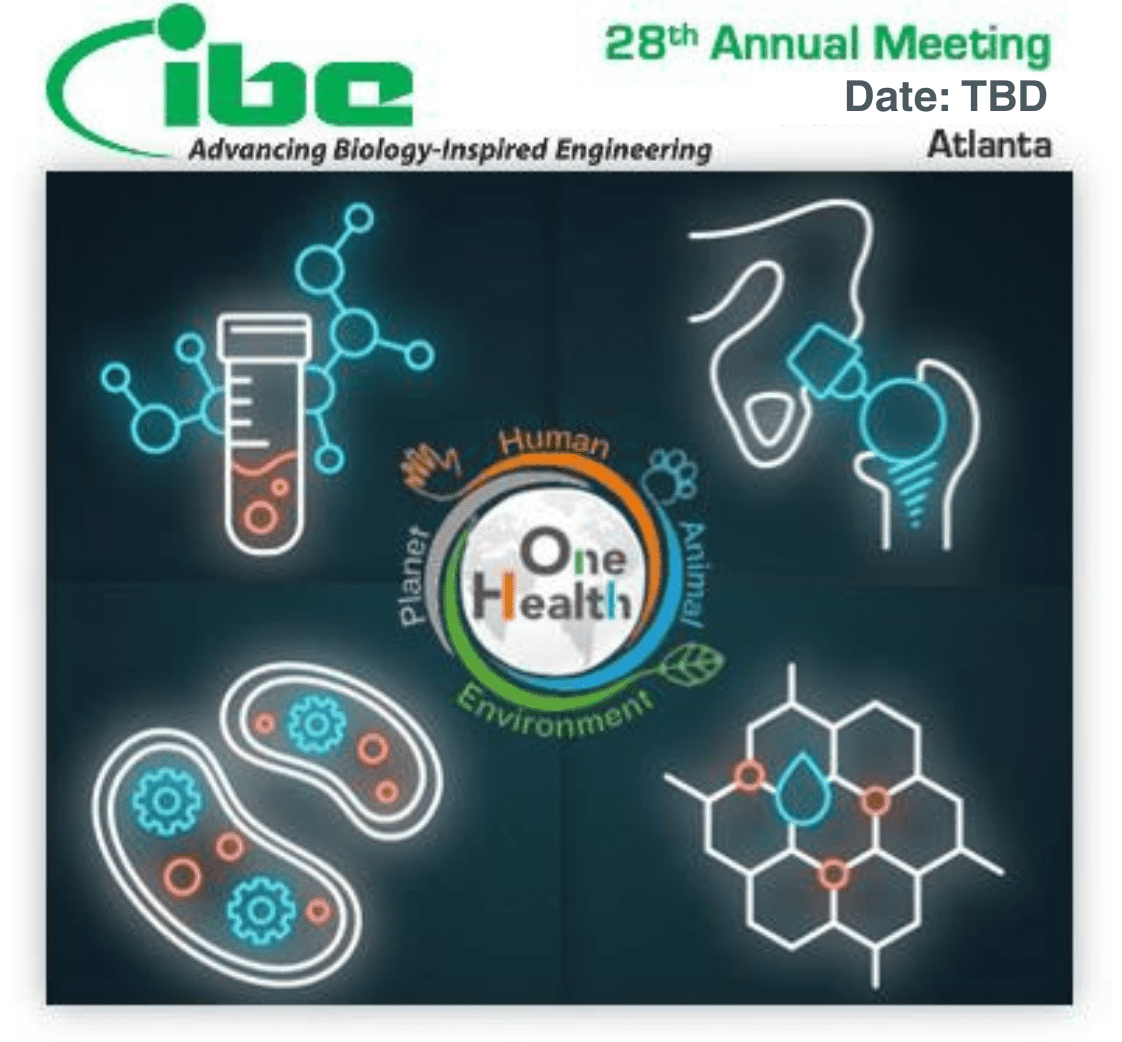Technical Sessions
Synthetic Biology and Metabolic Engineering:
This session will focus on advances in recent advances in synthetic biology and metabolic pathway engineering for novel biofuels and chemicals as well as engineering cellular fitness and tolerance, including but not limited to development of foundational technologies (new platform technologies and molecular tools – parts, devices, and systems) that support the design and construction of new and modified engineered biological systems, the application of synthetic biology strategies to the design and construction of engineered biological systems that can provide solutions to real world problems, metabolic pathway identification, flux analysis, pathway reassembly, biocatalysis, and biosynthesis.
Biological Engineering Applications in Industry:
This session will focus on the applications of biological engineering within industrial contexts, encompassing a wide array of fields such as pharmaceutical products, agricultural practices, bioremediation, biosensors, food materials, and biofuels.
From Linear to Circular Bioeconomy Systems:
The session focusses on transitioning of current linear food & agriculture systems to circular systems. The general topics include the latest developments in upcycling, downstream integration of waste streams within the food and agriculture systems, regenerative agricultural practices, vertical agriculture, anaerobic digestion, composting and value addition to waste streams.
Bioenvironmental Engineering:
This session provides a forum for local emerging companies to introduce their technologies and companies to the engineers, life scientists, and fellow business registrants for this meeting. The Bio-Business Nexus session typically allots participating companies 12-15 minutes for a podium presentation. If desired, display materials may be placed in the meeting room during the session. We will accept participants on a first-come, first serve basis as we have time available in the program.
Biological Sensing and Diagnostics 1 (food & agriculture) and Biological Sensing and Diagnostics 2 (humans & animals):
Biological sensing refers to the use of a biological recognition element for detection and/or quantification of an analyte through optical, electrochemical, electronic, gravimetric transduction of signal in a device called biosensor. The biological recognition element could be an enzyme, antibodies, nuclei acids, cell receptors, viruses, organelles or microorganism that interact or bind selectively with the analyte. The analyte could be a chemical or biological species of clinical or environmental importance. This session invites abstracts that research topics that focus on the development and application of a broad range biological sensor technology for applications relating to agriculture, biological sciences, the environment, and medicine.
Biomedical Engineering Applications:
This session covers a broad range of biomedical engineering topics, focusing on the application of engineering and design principles in the medical field, including but not limited to medical devices, bioimaging, drug delivery, regenerative engineering, neural engineering, and computational biomedical engineering.
Biomaterials & Nanomaterials:
The focus of this session will be on the development of technologies including nanotechnology that utilize biological materials or biological functions as a design element, which mimics the biological systems, towards artificial tissues/organs, drug delivery/targeting, nanofabricated surfaces, sensors, microfluidic devices, chemical processing, and other biological engineering applications.
Biomanufacturing & Bioprocessing:
This session will concentrate on the latest advancements in the manufacturing and processing of a diverse range of bioproducts, including biofuels, biopharmaceuticals, food ingredients, and various others.
Sustainable, Bio-derived Fuels, and Chemicals:
Living systems such as plants, trees, microbes, animals or previously lived organisms and their byproducts (e.g. manure) can be used to produce fuels, energy, materials and chemicals. Modern technologies and tools offer means to generate diverse stream of products from biomass sources in a sustainable manner with significantly low environmental, ecological and social impacts. This session invites abstracts on a broad range of sustainable biomass topics including biofuels, bio-derived materials and chemicals and their associated conversion technologies, techno-economic analysis and life cycle analysis.
Emerging Pathogens and Infectious Diseases Preparedness, Surveillance, and Response
Tissue & Cellular Engineering:
Tissue engineering refers to the use of cells, materials and biochemical factors to improve or replace biological functions by employing sets of methods to replace or repair damaged or diseased tissues with natural, synthetic or semisynthetic tissue mimics that will offer the desired functionality. Cellular engineering is a field focusing on engineering of host cells for enhanced production of valuable products or improved properties of cells. The session invites abstracts related to all areas of tissue and cellular engineering, including but not limited to cell culturing, isolation, cell seeding, cell harvesting, scaffolds for tissue engineering, bone grafting, bone tissue engineering, bone scaffolds, cellular therapies, artificial organs, gene and drug delivery, cell-substrate interactions, regenerative medicine and clinical translation of these approaches.
Integrative Precision Agriculture
Special Sessions
Beyond "Know your audience": What's Biological Engineering, anyway?
Biological Engineering Education – Convergence, Circularity, and Ethical Considerations
Charting the Future of Bioengineering within the One Health Paradigm
Role of Biological Engineering in Bioeconomy
Special Programming
Poster Session – open to everyone, best poster awards for students:
The poster session presentations covering any topic within biological engineering are invited. A special poster session for student research projects or engineering design projects will be included within the poster session. The top three Undergraduate Student Posters and top three Graduate Student Posters will receive cash awards and certificates of merit.
Speed Networking – open to everyone, find new collaborations and job opportunities:
This event provides a wonderful social opportunity for the attendees, including students, researchers, professors, industry representatives, and other professionals.
Future Innovators Biodesign Challenge: The Bio Fidget Spinner – workshop for high school students and undergraduates
Bio-Business Career Panel – open to everyone, learn from and interact with experts in the field:
This session provides a forum for emerging companies to introduce their technologies and companies to the engineers, life scientists, and fellow business registrants for this meeting. This session is a great opportunity for the attendees to directly interact with industry representatives.
Bioethics Essay Competition – open to students and awards for students:
This session will feature the results of a student competition and selected presentations on bioethics as it relates to biological engineering topics.

